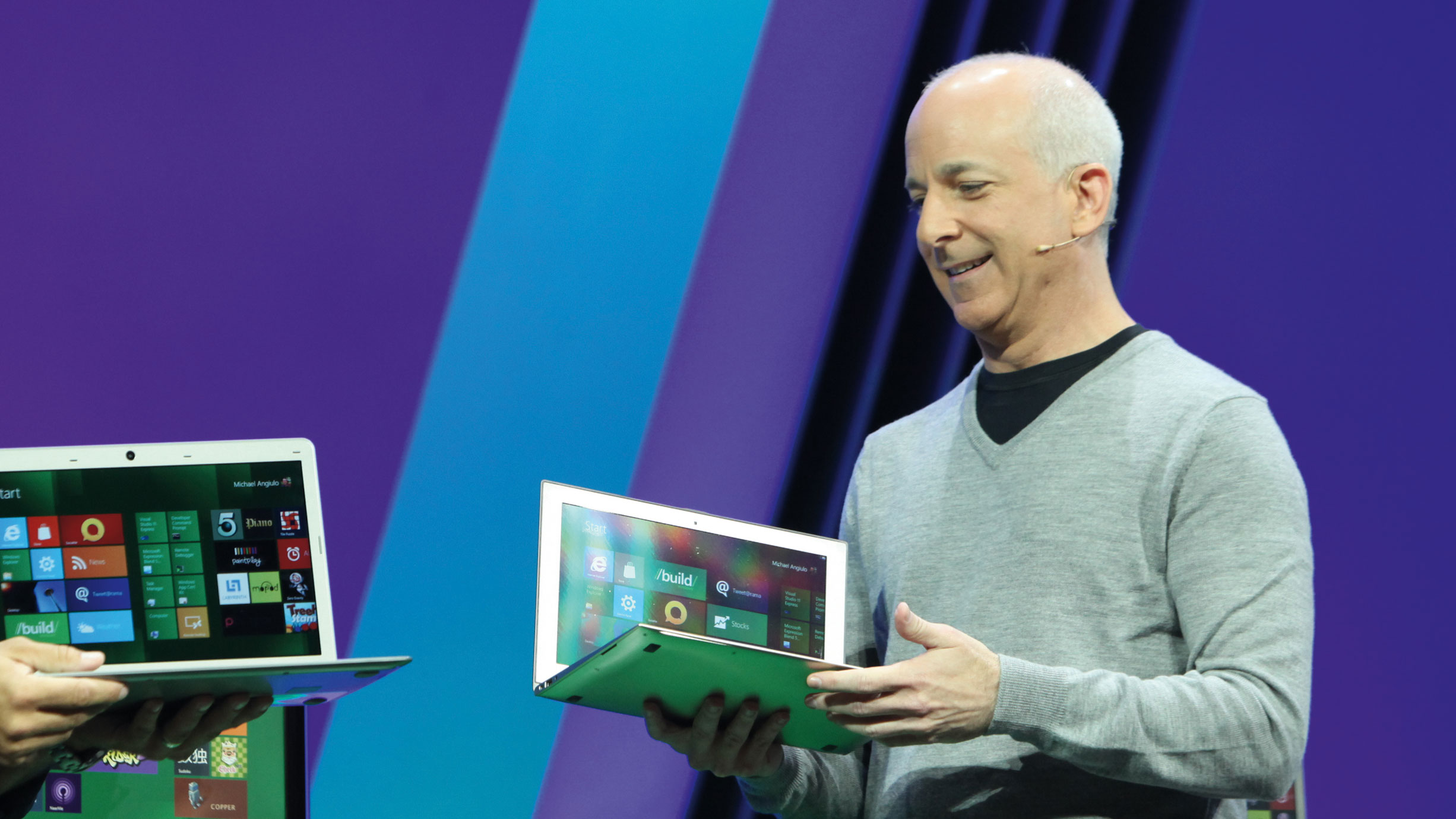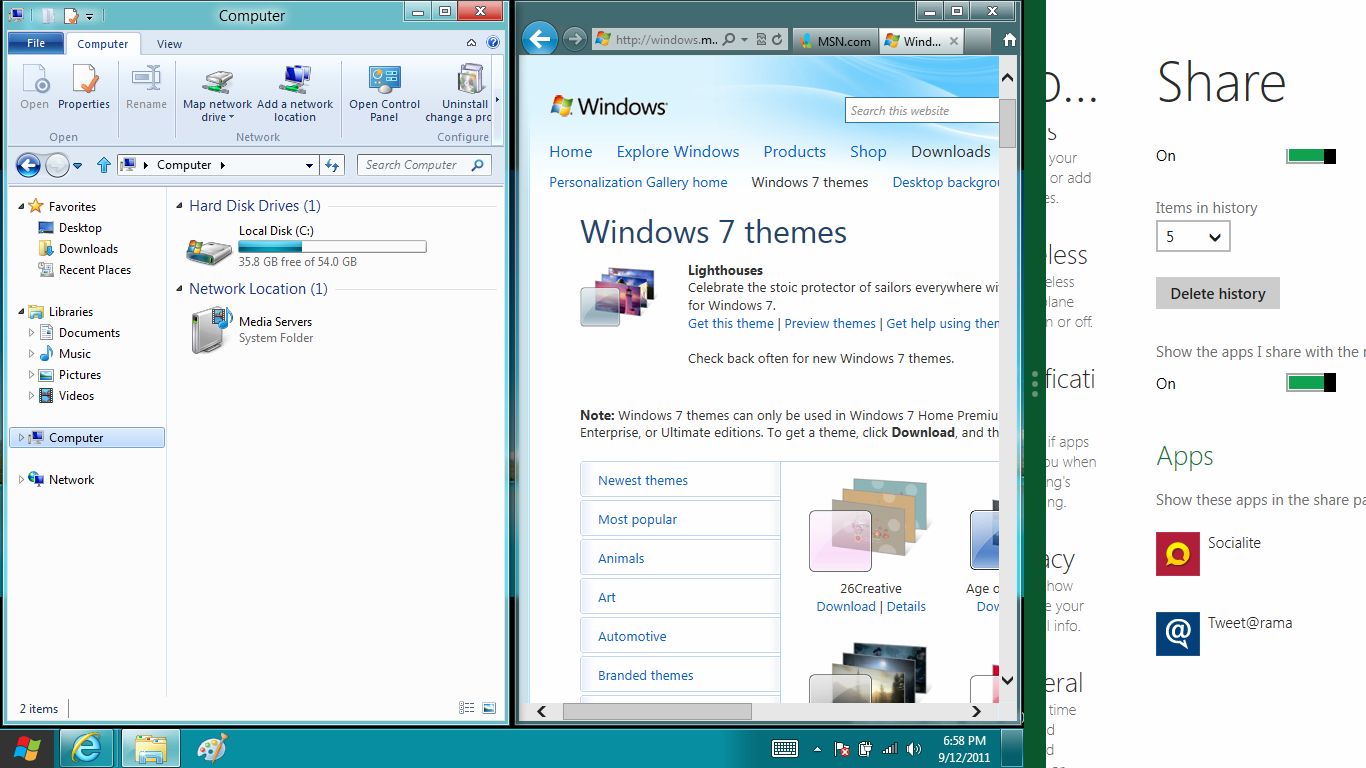The elephant in the room for Windows 8
Why legacy app support is a big deal for Microsoft's new OS

Windows 8 is coming. We've heard all about it, poked around with it and really rather like it.
What Microsoft is doing is good and, what's more, it might breed a whole new range of multipurpose computing devices that go beyond the tablet.
But the OS presents one massive issue that Microsoft has yet to fully answer: how will it tell people they can't run legacy apps on ARM versions of the OS?
At a closed 'Windows on ARM' demo I attended at CES in January, Microsoft's Steven Sinofsky made it crystal clear that legacy x86 apps wouldn't have any way of working on new ARM-based Windows systems.
So how will Microsoft tell people and help them to work out what's what?
After all, we're all used to buying a Windows PC and sticking all and sundry on it. If people can't do this with an ARM-based Windows tablet but you can with an Intel-based Windows tablet, confusion will reign.
Relying on developers
Sinofsky went on to make it sound like the problem won't apply to new Metro apps: "When you write a Metro style application, all the tools are there to enable you in any of the languages that we support to automatically support ARM or X86. I think that's the key part of everything that we'll run."
Are you a pro? Subscribe to our newsletter
Sign up to the TechRadar Pro newsletter to get all the top news, opinion, features and guidance your business needs to succeed!
But Metro is merely a UI specification rather than a new application execution model – programs will still need to be compiled for both the x86 and ARM architectures.
Therefore Microsoft is, to a certain extent, leaning on developers – many will need to make their apps compatible with both x86 and ARM. There's no magic potion for this.
Microsoft certainly hasn't given developers an awful lot to go on, most notably there has been little communication from Microsoft explaining how it will differentiate the Windows 8 versions.
A Windows of two halves?
Could things be as clear as people being told to buy Intel-based hardware if they need it for legacy apps? Could this be a reason to plump for an Intel or AMD-based Windows 8 tablet over an ARM one?
It might well be. After all, there will also be a lot less apps available for ARM devices from the off – though the Windows 8 Store should see this issue off. While there is still the issue of developing multiple binaries, distribution is a lot easier in the age of the app store.
Microsoft has also been working hard behind the scenes to support other devices on ARM-based platforms, the first example of which was when it used a Qualcomm Snapdragon-based test platform to print from within Windows at CES.
And it's not as if there will be any difference between the two types of the OS. All the signs point towards ARM-based Windows 8 machines shipping with both the traditional desktop and the new Metro interface – it will all be consistent. Everything looks the same as the Windows 8 Developer Preview running on x86-based hardware.

FAMILIAR: You'll have a traditional Windows desktop in both the ARM and x86 versions of Windows 8
It also seems there's no requirement for apps developed for Windows 8 on ARM to be Metro apps – so there will be desktop apps for ARM just as there will for x86.
And if you're thinking that Microsoft will discourage the use of legacy apps across Windows 8, this isn't likely.
There will also be a Windows 7 Mode in the x86 version of the OS. Many existing Windows apps also run fine on the x86 Windows 8 Developer Preview - even though the purpose of releasing the development software is to get people used to the way that Metro apps work.
Of course, if ARM Windows 8 devices really take off – as I think is very likely with the kind of technology we're seeing from Nvidia with Tegra – then we could be faced with a completely split operating system that, on the surface, looks identical but where app support is drastically different – another massive headache for developers, hardware manufacturers and Microsoft alike.
And without demonstrable design wins in tablets, there are also huge questions for Intel and AMD to deal with – in the face of Microsoft's support for ARM, these huge corporations could be seen very much as providing technology for legacy desktop and laptop devices rather than next-gen convertibles and tablets.
But most of the heat is on Microsoft with this one. And I, for one, am very intrigued how it's going to deal with this particular hot potato.
Dan (Twitter, Google+) is TechRadar's Former Deputy Editor and is now in charge at our sister site T3.com. Covering all things computing, internet and mobile he's a seasoned regular at major tech shows such as CES, IFA and Mobile World Congress. Dan has also been a tech expert for many outlets including BBC Radio 4, 5Live and the World Service, The Sun and ITV News.